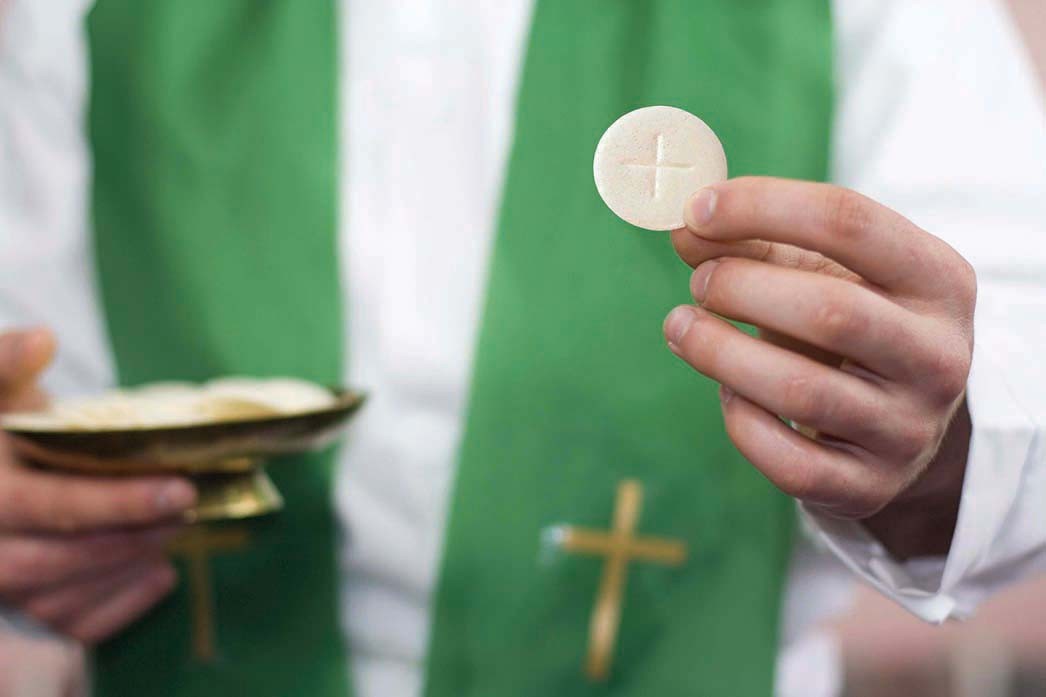The issue of Catholic politicians and the Eucharist is once again in the headlines this week, after Fine Gael TD Colm Burke expressed surprise that he was refused Holy Communion by a priest at a recent funeral Mass in Co. Cork.
According to reports, the priest went further and told Mr Burke that he was, in fact, excommunicated because of his support for abortion.
This is not strictly true, at least in the formal sense. Catholic politicians who vote for the killing of unborn children are indeed out of step with the Church, and Pope Francis has said they are out of communion with the community of believers.
But this is quite different from the formal excommunication that the Church prescribes for those who directly facilitate the destruction of unborn human life playing a role in making a particular abortion happen. This incurs the penalty of automatic excommunication, as a means to try to call the person to their sense.
The issue of Catholic politicians who persist in promoting and endorsing grave wrongs that are contrary to the moral law while continuing the normal practise of their faith is a vexatious one.
It is partly bound up, of course, with a very impoverished understanding of the Eucharist and the necessary conditions for a worthy reception of the Blessed Sacrament. How often, for example, does one witness at large public liturgies such as weddings and funerals people simply take their place in the Communion line whether they are believers or not.
The nature of contemporary culture is that participation in everything is seen as a right, regardless of what one actually believes.
On voting, Catholic politicians – like all Catholics – are bound to follow their conscience. But this again raises the issue of how poorly formed many consciences are – conscience is not a ‘get out of jail free’ card, but a real court of final arbitration the judgement of which is written on one’s heart.
The teaching of the Church is clear: since human life is sacred, a Catholic cannot in good conscience support abortion. It is a grave sin, and therefore makes one unworthy to receive the Blessed Sacrament.
Of course, many people who are guilty of private grave sins cheerfully receive the Eucharist without hinderance, but the public nature of a politician at odds with the Church on such a fundamental issue gives grave scandal. This is particularly true when there are members of the congregation who are themselves conscious of grave sin, and therefore refrain from approaching the altar.
There is obviously a question of prudence as to whether it is correct, particularly in the context of a funeral, to refuse to administer the Sacrament to an individual. Such a refusal also runs the risk of causing scandal and indeed politicising the Eucharist. But it might also be said that a politician who is fully aware of the Church’s teaching is also politicising the Eucharist by approaching the Communion line.
Pastoral accompaniment would dictate that a priest, ideally the local bishop, would make sure that Catholic politicians out of step with the Church on the issue of abortion are fully aware of the incompatibility of their stance with Holy Communion. As pastors, they should first and foremost try to get the politician to step back from their support for abortion, letting them know that if they persist there are real consequences for that refusal and subsequent lack of actual communion of mind and spirit with the Body of Christ, the Church.
One might ask a wider question about how so many Catholic politicians – often after 14 years of Catholic schooling – can find themselves at odds with the Church on an issue like abortion, and further how they can have such an impoverished understanding at the Eucharist.
At the same time, the Church must be conscious that the Eucharist is not a reward for good behaviour, but real food that nourishes us in our journey towards holiness.
It is a curious feature of these controversies that politicians who so religiously support the rigid application of the party whip system where even minor offenders are excluded from the parliamentary party for not supporting a particular comma in party policy, find the Church setting minimum standards for something as important as the Eucharist so perplexing.
